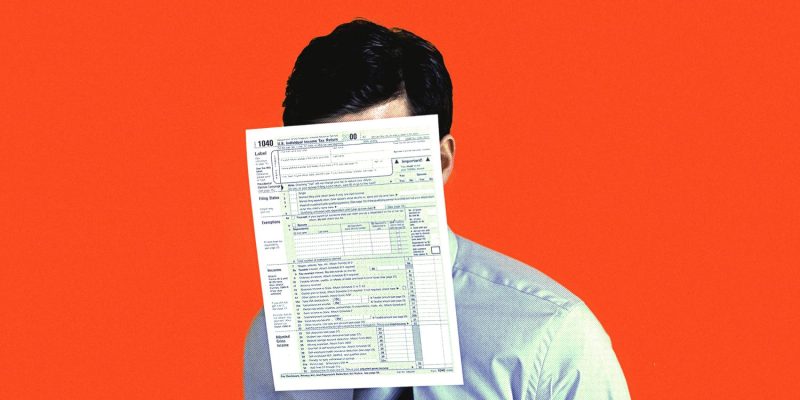February 5, 2024
Maximize Your Refund: Beware how Higher Tax Filing Costs can Claw away your Money!
 Higher Tax Filing Costs Could Take a Bite Out of Your Refund
Tax season can be stressful for many individuals and families as they gather their financial documents, complete complicated forms, and navigate the intricate world of tax laws and regulations. However, in recent years, another challenge has emerged – the rising cost of filing taxes. With tax preparation fees on the rise, taxpayers may find themselves paying more to file their returns, ultimately reducing their expected refund.
The American Institute of CPAs (AICPA) reported that the average cost of preparing and filing a tax return was $273 in 2020, a 9% increase from the previous year. This increase can be attributed to various factors, including inflation, the growing complexity of the tax code, and the introduction of new laws and regulations. As a result, individuals and families may have to pay more to hire a tax professional or use tax software to complete their returns accurately.
For those who choose to hire a tax professional, the costs can be even higher. Certified Public Accountants (CPAs) and tax attorneys, due to their specialized knowledge, often charge higher fees compared to other tax preparers. Additionally, the complexity of an individual's tax situation can impact the final bill. Taxpayers with multiple sources of income, investments, or self-employment income may face additional charges for the time and expertise required to address their unique circumstances.
Some taxpayers opt to use tax software, such as TurboTax or H&R Block, to prepare their returns. While these programs can be more cost-effective than hiring a professional, their prices have been steadily increasing. Many tax software companies offer different tiers of service, with higher-priced options providing more comprehensive features. However, even the basic versions of these programs can come with a considerable price tag.
The increase in tax filing costs can be frustrating for individuals and families who rely on their tax refund as an essential financial resource. For many, tax refunds serve as a much-needed boost to pay off debt, save for the future, or cover unexpected expenses. However, the rising fees associated with filing taxes may diminish the amount received in the refund, leaving taxpayers with less money than expected.
Fortunately, there are steps taxpayers can take to mitigate the impact of higher tax filing costs. Firstly, individuals can educate themselves about the tax code and become more knowledgeable about deductions, credits, and exemptions that may apply to their specific situation. By understanding these elements, taxpayers can potentially maximize their refund while minimizing the time required by a tax professional or software.
Furthermore, taxpayers should explore various tax filing options to ensure they are getting the best deal. Shopping around for tax professionals or comparing prices of different tax software can help individuals find affordable options that suit their needs. Additionally, individuals can consider free tax filing options available through the Internal Revenue Service's (IRS) Free File program for those with a lower income.
Another approach is to start early and stay organized throughout the year. Procrastination often leads to rushed decisions and last-minute expenses when it comes to filing taxes. By keeping track of receipts, expenses, and necessary documentation throughout the year, individuals can minimize the time and effort required to complete their returns accurately. Moreover, early planning allows taxpayers to explore different filing options and compare costs before prices increase closer to the filing deadline.
In conclusion, the rising cost of tax filing can put a dent in expected tax refunds for individuals and families. As fees for tax professionals and software continue to increase, it is essential for taxpayers to take charge of their financial situation by becoming more educated about the tax code, exploring various filing options, and staying organized throughout the year. By taking these steps, individuals can minimize the impact of higher tax filing costs and ensure they still receive the refund they deserve.
Higher Tax Filing Costs Could Take a Bite Out of Your Refund
Tax season can be stressful for many individuals and families as they gather their financial documents, complete complicated forms, and navigate the intricate world of tax laws and regulations. However, in recent years, another challenge has emerged – the rising cost of filing taxes. With tax preparation fees on the rise, taxpayers may find themselves paying more to file their returns, ultimately reducing their expected refund.
The American Institute of CPAs (AICPA) reported that the average cost of preparing and filing a tax return was $273 in 2020, a 9% increase from the previous year. This increase can be attributed to various factors, including inflation, the growing complexity of the tax code, and the introduction of new laws and regulations. As a result, individuals and families may have to pay more to hire a tax professional or use tax software to complete their returns accurately.
For those who choose to hire a tax professional, the costs can be even higher. Certified Public Accountants (CPAs) and tax attorneys, due to their specialized knowledge, often charge higher fees compared to other tax preparers. Additionally, the complexity of an individual's tax situation can impact the final bill. Taxpayers with multiple sources of income, investments, or self-employment income may face additional charges for the time and expertise required to address their unique circumstances.
Some taxpayers opt to use tax software, such as TurboTax or H&R Block, to prepare their returns. While these programs can be more cost-effective than hiring a professional, their prices have been steadily increasing. Many tax software companies offer different tiers of service, with higher-priced options providing more comprehensive features. However, even the basic versions of these programs can come with a considerable price tag.
The increase in tax filing costs can be frustrating for individuals and families who rely on their tax refund as an essential financial resource. For many, tax refunds serve as a much-needed boost to pay off debt, save for the future, or cover unexpected expenses. However, the rising fees associated with filing taxes may diminish the amount received in the refund, leaving taxpayers with less money than expected.
Fortunately, there are steps taxpayers can take to mitigate the impact of higher tax filing costs. Firstly, individuals can educate themselves about the tax code and become more knowledgeable about deductions, credits, and exemptions that may apply to their specific situation. By understanding these elements, taxpayers can potentially maximize their refund while minimizing the time required by a tax professional or software.
Furthermore, taxpayers should explore various tax filing options to ensure they are getting the best deal. Shopping around for tax professionals or comparing prices of different tax software can help individuals find affordable options that suit their needs. Additionally, individuals can consider free tax filing options available through the Internal Revenue Service's (IRS) Free File program for those with a lower income.
Another approach is to start early and stay organized throughout the year. Procrastination often leads to rushed decisions and last-minute expenses when it comes to filing taxes. By keeping track of receipts, expenses, and necessary documentation throughout the year, individuals can minimize the time and effort required to complete their returns accurately. Moreover, early planning allows taxpayers to explore different filing options and compare costs before prices increase closer to the filing deadline.
In conclusion, the rising cost of tax filing can put a dent in expected tax refunds for individuals and families. As fees for tax professionals and software continue to increase, it is essential for taxpayers to take charge of their financial situation by becoming more educated about the tax code, exploring various filing options, and staying organized throughout the year. By taking these steps, individuals can minimize the impact of higher tax filing costs and ensure they still receive the refund they deserve.
If you would like to delve into the world of investment topics , go to our partner project Wall Street Wizardry


